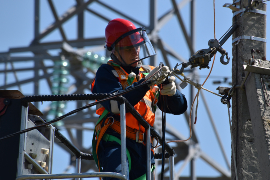Mga spotlight
Power Line Technician, Electrical Technician, Electric Utility Technician, Substation Technician, Energy Maintenance Technician, Power System Technician, Electrical Field Technician, Power Plant Technician, Renewable Energy Technician, High Voltage Technician, Transmission Technician, Distribution Technician, Electrical Lineman, Energy Inspection Technician, Energy Repair Technician, Electrical Installer and Repairer, Electrical Equipment Installer/ Repairer
Our world runs on electricity! But where does all that electric power come from? Currently, 60% of our electric power is generated from fossil fuels—primarily coal and natural gas. The rest comes from equal parts nuclear power and renewables like wind, hydropower, and solar.
Energy Generation/Power Distribution, Maintenance, Inspection, and Repair Technicians (or Power Systems Technicians, for short) is a broad term for the workers who ensure our electrical power systems operate smoothly.
As Electrical Field Test Technicians, their duties may include maintaining, inspecting, and repairing the electrical equipment that produces power (usually at power plants, substations, switchyards, or solar and wind farms).
As Electrical Power-Line Installers and Repairers, they maintain the power lines that transmit electricity from its origin points around the country to all of us end users, wherever we are! This involves managing the electric grid infrastructure and its transformers, substations, and network of distribution lines that we see suspended in the air on poles and towers.
As Power Distributors and Dispatchers, they’re responsible for controlling and managing the flow of electricity from power plants to substations and consumers, ensuring a stable, continuous supply of power.
Though the efforts of Power Systems Technicians often go unnoticed, the results of their work keep our society running day and night!
- Directly contributing to the efficiency and reliability of energy generation and distribution
- Ensuring public safety and the smooth operation of countless facilities and homes
- Preventing costly breakdowns and disruptions through regular maintenance and repair work
Oras ng trabaho
Power Systems Technicians (Electrical Field Test Technicians, Electrical Power-Line Installers and Repairers, and Power Distributors and Dispatchers) work full-time with occasional overtime to meet project deadlines. The job involves traveling to sites, sometimes outside the local area. They may be exposed to various weather conditions when working outdoors, and must always practice safety measures to avoid mishaps and injuries.
Mga Karaniwang Tungkulin
Power Systems Technicians may work as either Electrical Field Test Technicians, Electrical Power-Line Installers and Repairers, or Power Distributors and Dispatchers. There is overlap sometimes—especially when it comes to the knowledge and skills required.
Power Distributors and Dispatchers manage the flow of power from its origin sources to the end users. Power-Line Installers are focused on the physical infrastructure of power distribution. Electrical Field Test Technicians have a broader role that includes assessing the performance and safety of electrical systems and equipment.
The extent of any duty overlap depends on the specific job setting and employer requirements.
- Install electrical equipment like generators, turbines, boilers, heat exchanges, control systems, transformers, switchgears, pumps, values, conveyors, feeders, emission control systems, cooling systems, batter systems, and renewable energy systems
- Operate equipment and oversee proper functioning
- Perform routine maintenance to keep equipment at optimal performance and extend the system’s lifecycle
- Use diagnostic sensors, gauges, and other instruments to troubleshoot and repair issues
- Consult operating manuals, schematics, and diagrams to troubleshoot problems
- Maintain electric power lines to ensure uninterrupted power supply
- Conduct thorough systems inspections to find any faults, damage, or potential hazards
- Test and calibrate equipment as needed
- Respond to outages and emergencies to get power back up safely
- Keep records of all maintenance work, inspections, and repairs
- Follow established safety procedures to avoid mishaps and injuries; wear appropriate personal protective equipment
- Coordinate efforts with fellow technicians, supervisors, and managers
Mga Karagdagang Pananagutan
- Stay up-to-date on industry regulations and new technologies and processes
- Participate in safety meetings, training sessions, and crew debriefings
Soft Skills
- Kakayahang umangkop
- Analitikal na pag-iisip
- Pansin sa detalye
- Malinaw na komunikasyon
- Continuous learning mindset
- Kritikal na pag-iisip
- Mabusisi pagdating sa detalye
- Independent
- Pagtugon sa suliranin
- Pagtitiyak ng kalidad
- Maingat sa kaligtasan
- Mukhang makatarungan
- Pagtutulungan ng magkakasama
- Visualization
Teknikal na kasanayan
- Ability to interpret and utilize blueprints, technical drawings, and schematics
- Basic electrical and mechanical engineering principles relevant to power systems
- Analysis using data from diagnostic tools and systems
- Familiarity with energy regulations, electrical codes, and safety standards
- Power generation equipment (generators, turbines, etc.)
- General math to calculate electrical loads
- Electrical systems (i.e., high-voltage power transmission and distribution networks)
- Compiling data into reports for maintenance, repair, or improvements
- Safety practices related to high-voltage equipment
- Power systems tools (voltage testers, multimeters, diagnostic equipment)
- Physical stamina, hand-eye coordination, and the ability to work at heights
- Energy generation companies
- Power distribution firms
- Mga ahensya ng gobyerno
- Research and development institutions
- Maintenance and repair service providers
The work of Power Systems Technicians impacts the safe creation and distribution of the power that runs our communities. They must perform their duties with a high degree of precision, especially when working on high-voltage equipment! The job demands attention to detail and adherence to strict safety protocols.
Sometimes the work environment can be challenging, especially when working outside in extreme weather, at heights, or in confined spaces. That’s why workers in this field need to be in good physical condition. They also have to be ready to respond on short notice to power outages.
Because the associated technology is ever-changing, technicians must commit to an ongoing process of learning new things. That may mean investing personal time to knock out training and certification courses.
There’s a big shift towards integrating renewable energy sources like solar, wind, hydro, and geothermal into the nation’s power grid, as communities push for sustainable, environmentally friendly energy solutions.
However, integrating these variable energy sources into the existing grid infrastructure requires changes to grid management and energy storage technologies. Solar power, for example, relies on sunshine—which isn’t always available (such as at night or when it’s cloudy). Luckily, developments in battery technology like lithium-ion and solid-state batteries are making energy storage more efficient and affordable.
Meanwhile, smart grid technology is helping to boost efficiency and reduce waste by detecting and reacting to local changes in power usage. This is done via communication between the utility companies and the end customers, via smart meters, IoT devices, and energy management systems.
Power Systems Technicians likely enjoyed physical activities and being outside a lot in their younger days. They could have been interested in mechanical and electrical projects or experiments, or just had a general inclination towards technical, hands-on activities!
- Entry-level Power Systems Technicians need at least a high school diploma or GED. Some employers prefer applicants to have an associate or bachelor’s degree, but it depends on the position
- Requirements can vary for jobs such as Electrical Field Test Technician, Electrical Power-Line Installer, and Power Distributor/Dispatcher
- Having relevant work experience in power plant operations, substation operations, electrical work, metal fabrication, pipe fitting, or general construction may be sufficient, instead of a degree
- Work experience can be gained through part-time jobs, internships, high school pre-apprenticeships, and volunteerism
- Common college majors include electrical engineering, mechanical engineering, or energy technology
- Advanced roles may require specialized certifications or a master's degree
- Maaaring kabilang sa mga nauugnay na kurso ang:
- Mga Sistema ng Kontrol
- Pagproseso ng Digital Signal
- Electrical Machines and Drives
- Electromechanical Energy Conversion
- Environmental Impacts of Energy Systems
- Grid Integration of Renewable Energy Sources
- Power Distribution
- Power Electronics
- Power System Analysis
- Renewable Energy Technologies
- Safety in High-Voltage Environments
- Internships and registered apprenticeships can offer valuable practical experience that employers love to see! Per Apprenticeship.gov, high-demand energy-related apprenticeship occupations include:
- Electrical Power-Line Installers and Repairers, with job titles such as:
* Cable Installer-Repairer
* Cable Systems Installer/Maintainer
* High Voltage Electrician
* Line Erector (Power-Line Distribution Erector)
* Power-line Distribution Erector
* Transmission Line Worker
- Power Distributors and Dispatchers, with job titles like:
* Load Dispatcher
* Substation Operator
* Switchboard Operator (Utility)
- Electrical and Electronics Repairers, Powerhouse, Substation, and Relay, with job titles like:
* Corrosion-Control Fitter
* Electrician, Powerhouse
* Electrician, Substation
* Relay Technician
- Electric Motor, Power Tool, and Related Repairers, with job titles like:
* Battery Repairer
* Elect-Motor Assem & Tester
* Power-Transformer Repairer
* Transformer Repairer
- Employees can also expect to receive on-the-job training
- Optional professional certifications are also valuable, such as Certified Maintenance and Reliability Technician, Certified Energy Manager, OSHA 10 certification, and Confined Spaces Certification
- Due to the physical nature of the work, applicants should be in good physical condition
- Karaniwang nangangailangan ang mga manggagawa ng wastong lisensya sa pagmamaneho upang maglakbay sa mga lugar ng trabaho
- Note, that background checks and drug screenings are commonly required for this career field
- Look for accredited programs in fields like electrical, mechanical, or energy engineering
- Isaalang-alang ang halaga ng matrikula, tulong pinansyal, at mga pagkakataon sa scholarship
- Magpasya sa format ng programa: on-campus, online, o hybrid. Tandaan, na ang ilang mga hands-on na paksa ay kailangang matutunan nang personal
- Suriin ang mga rate ng paglalagay ng trabaho pagkatapos ng pagtatapos
- Itanong kung ang programa ay may mga koneksyon sa mga lokal na employer
- Sign up for classes in mathematics, physics, industrial arts, and electrical courses
- Engage in technical and vocational training related to energy systems, if offered. Often high school students can participate in pathway programs or take community college-level classes simultaneously
- Participate in school science clubs
- Engage in physical fitness activities to build strength and stamina
- Gain practical skills through energy-related internships or apprenticeships
- Suriin ang mga paglalarawan sa post ng trabaho upang malaman ang mga kasalukuyang kwalipikasyon at espesyalisasyon na hinahanap ng mga employer
- Note, “Power Systems Technician” is just a general job title for this broad field, Specific job titles include Electrical Field Test Technician, Electrical Power-Line Installer and Repairer, Power Distributors and Dispatchers, and others
- Contact a local energy company. Ask if you can do an informational interview with a working technician or maybe even shadow them for a day or get a tour!
- Watch videos and read blogs to learn about the industry
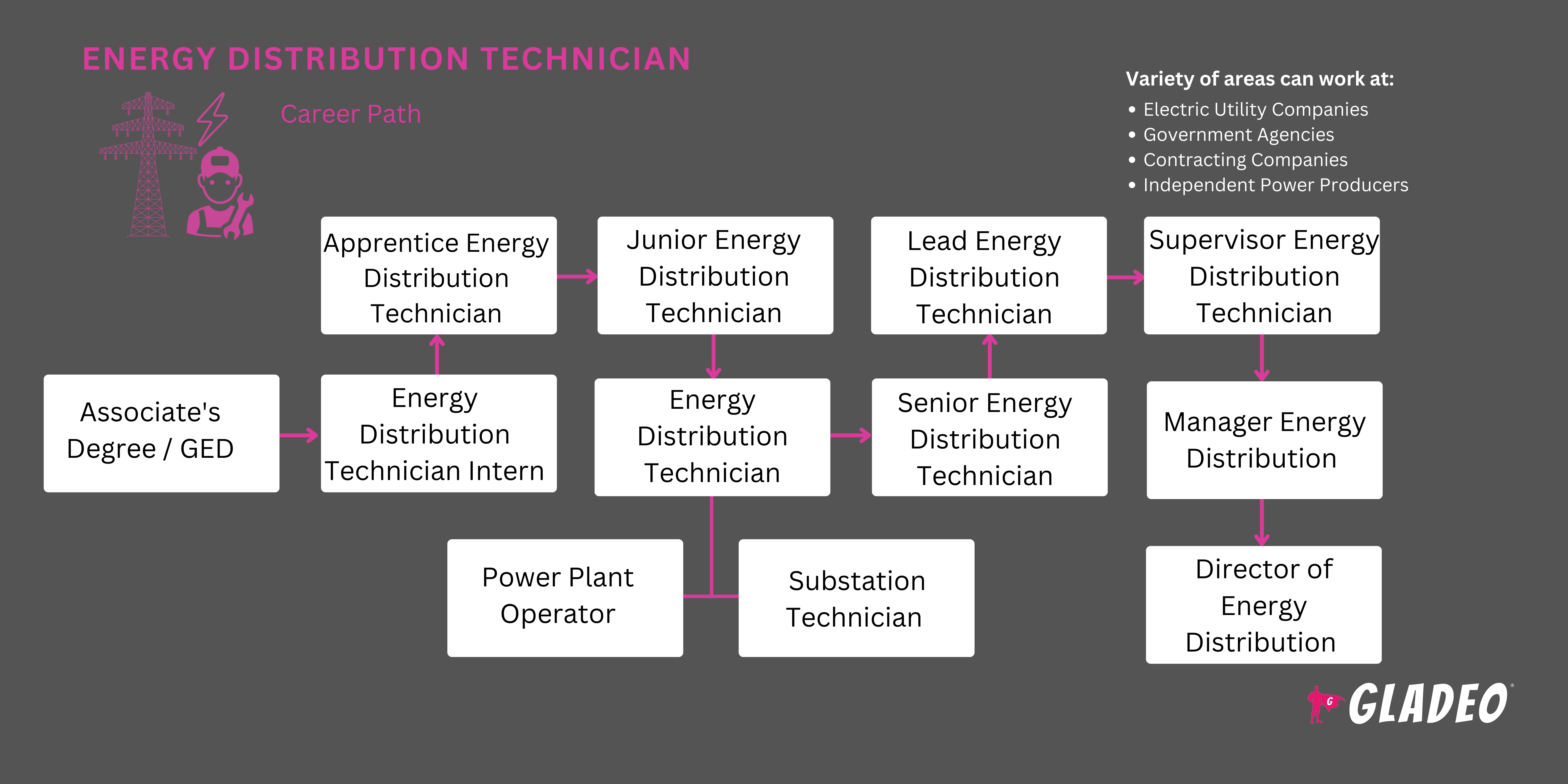
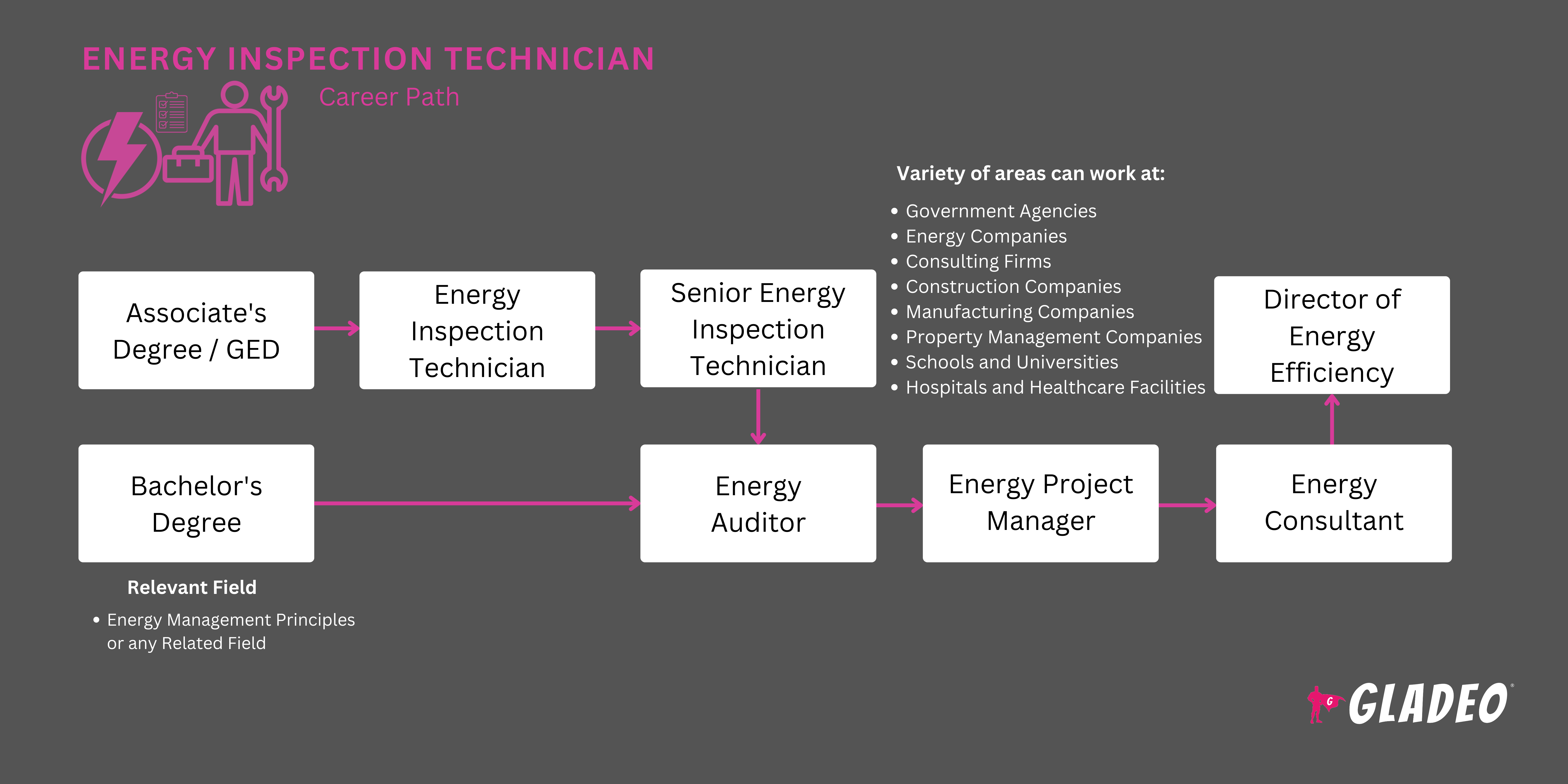
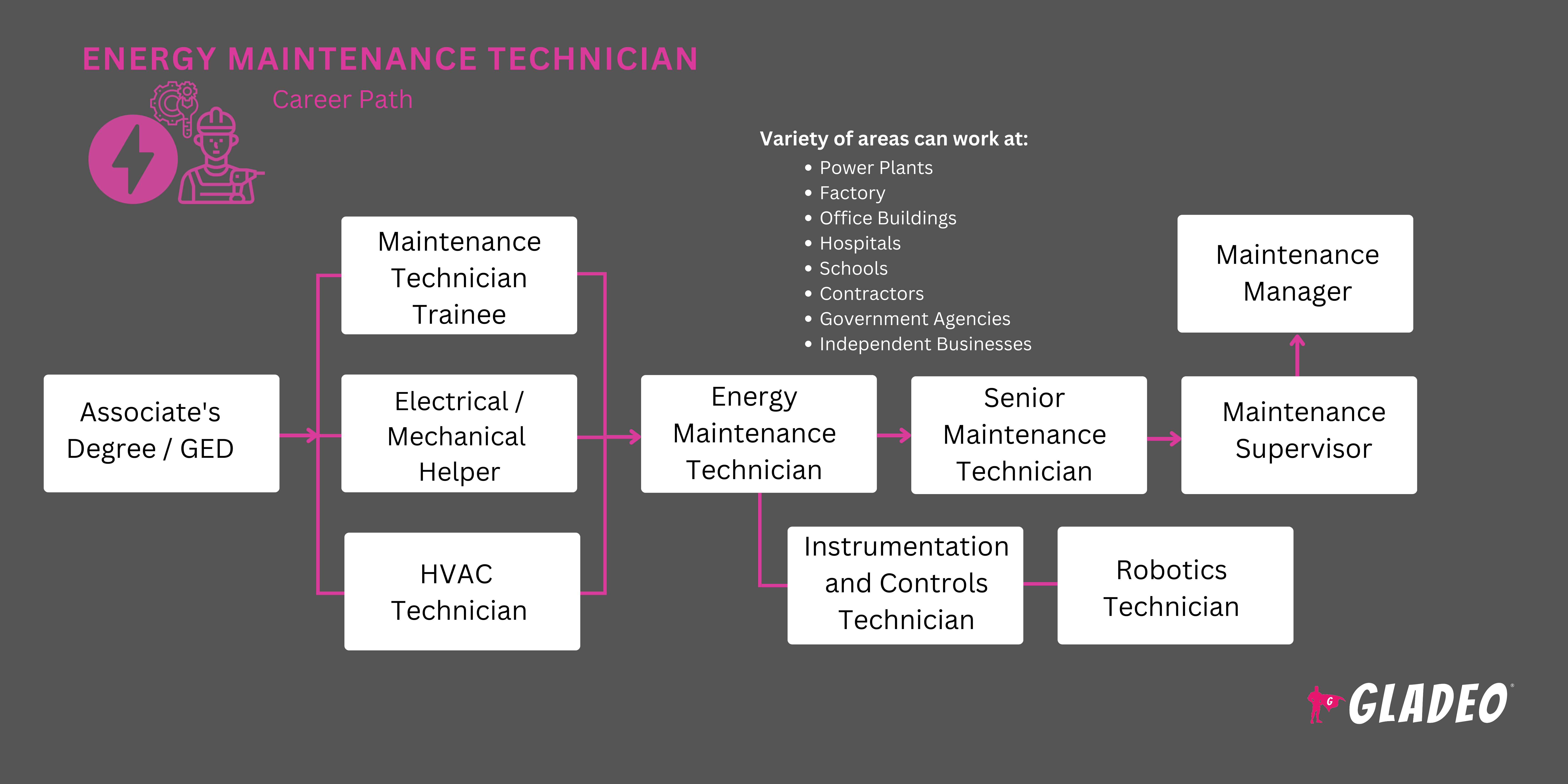
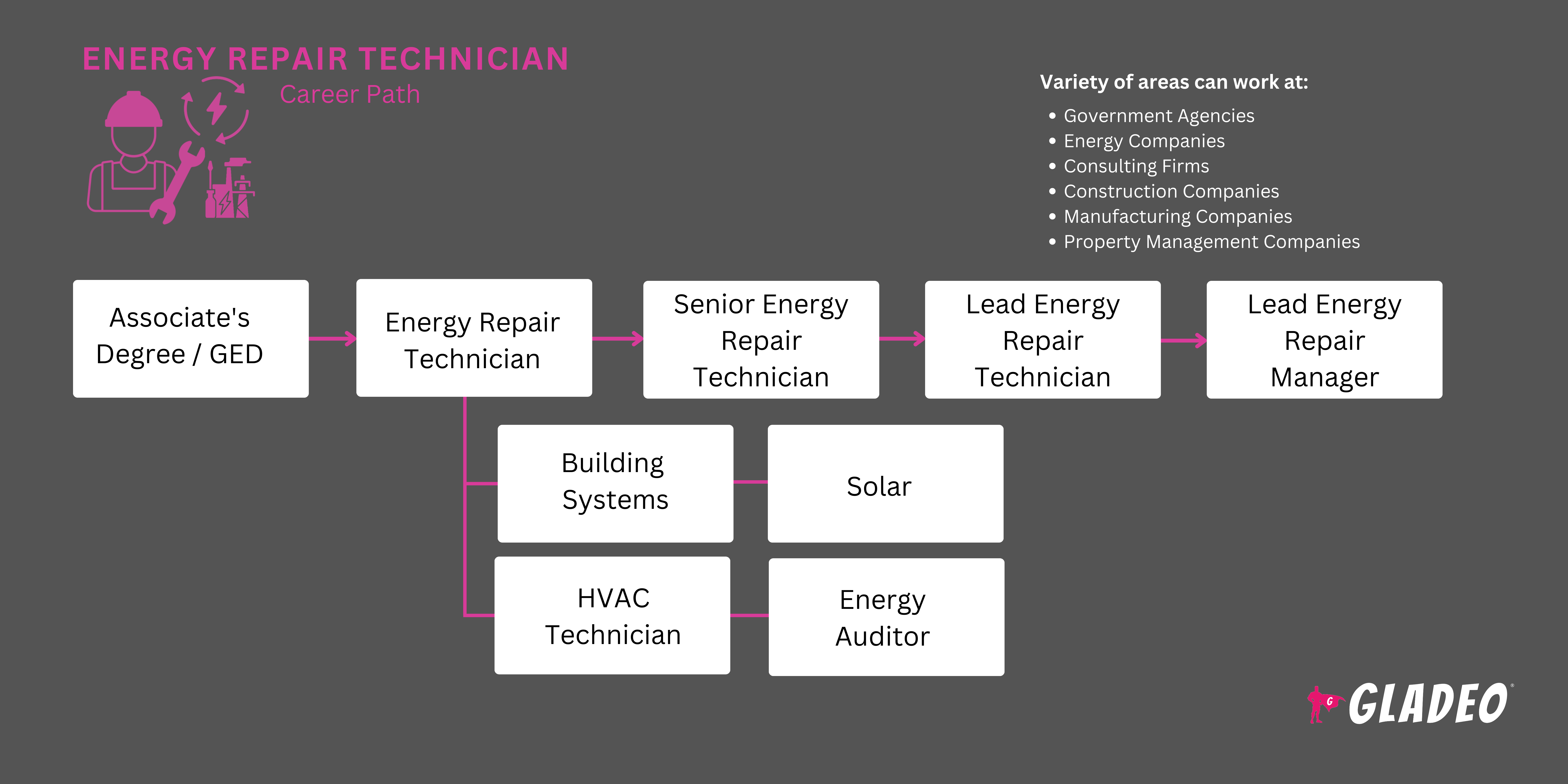
While searching for jobs, keep in mind that there are numerous possible job titles!
- Check out job postings on platforms like Indeed and industry-specific job boards like Energy Jobs Network
- Don’t forget your local Craigslist, or do a Google search for local energy companies and look at their career pages
- Maingat na basahin ang mga ad ng trabaho para sa mga partikular na kinakailangan at karanasan na hinahanap ng employer. Mag-apply lamang sa mga trabaho kung saan ka kwalipikado
- Take note of the keywords used in job posts. Try to work them into your resume, if they apply
- Search online for suitable resume templates to get ideas about formatting, phrasing, and keywords
- Use your school’s career center for help with resume and interview preparation. Study industry-related terminology and trends
- Ask your school if they have ties with local employers or recruiters
- Apply for internships, Registered Apprenticeship Programs, or entry-level positions to gain relevant experience and get your foot in the door
- If you do an internship or apprenticeship, talk to your supervisor/mentor about the potential for a full-time job
- Ipaalam sa lahat sa iyong network na naghahanap ka ng mga pagkakataon sa trabaho
- Tanungin ang mga dating superbisor at propesor sa kolehiyo kung magsisilbi sila bilang isang sanggunian o susulatan ka ng isang liham ng rekomendasyon
- Magsuot ng angkop para sa mga panayam sa trabaho
- Talakayin ang mga opsyon sa pag-unlad ng karera sa iyong superbisor, at makinig sa kanilang payo
- Seek out mentorship from more experienced professionals
- Understand your employer’s business goals and how your role contributes
- Take the initiative to knock out some continuing education courses, a specialized certification, or a higher-level degree. Professional development credentials include:
Electrical Power-Line Installers and Repairers
Certifications:
Continuing Education:
- Advanced lineman training programs
- Electrical safety and high-voltage training
- Emergency response and disaster recovery courses
Power Distributors and Dispatchers
Certifications:
- System Operator Certification (for Load Dispatchers)
- Electrical Power Testing certification
- Sertipikadong Tagapamahala ng Enerhiya
Continuing Education:
- Grid operations and management courses
- Energy market and regulations training
- Emergency management and system reliability training
Electrical and Electronics Repairers, Powerhouse, Substation, and Relay
Certifications:
Continuing Education:
- Power system and relay control courses
- Substation operation and maintenance training
- Electrical machinery repair techniques
Electric Motor, Power Tool, and Related Repairers
Certifications:
- Electrical Apparatus Service Association Certification
- Motor repair certifications
- Power tool repair certifications
Continuing Education:
- Electric motor and generator repair courses
- Industrial maintenance and troubleshooting techniques
- Battery technology and repair courses
- Magboluntaryo para sa mga mapaghamong proyekto upang ipakita ang iyong kakayahang umangkop at potensyal sa pamumuno
- Keep up-to-date on advancements in energy-related technologies
- Participate in professional organizations to grow your network and learn new things
- Mentor junior workers or interns. Share your expertise, establish expectations, and set the bar high
- Palaging magsagawa ng mahusay na mga pamamaraan sa kaligtasan kapag nakikitungo sa mga kagamitang pangkamay at pinapagana na kagamitan, o kapag nagtatrabaho sa mga potensyal na mapanganib na kondisyon
Mga website
- American Council para sa isang Energy-Efficient Economy
- Electrical Training Alliance
- Electric Power Research Institute
- Energy.gov
- Enerhiya Specialist Apprentice
- ENERGY STAR
- ETA International
- Mga Independent Electrical Contractor
- Institute of Electrical and Electronics Engineers
- International Brotherhood of Electrical Workers
- InterNational Electrical Testing Association
- Interstate Renewable Energy Council
- National Electrical Contractors Association
- National Institute for Certification in Engineering Technologies
- National Renewable Energy Laboratory
- North American Board of Certified Energy Practitioners
- Pangangasiwa sa Kaligtasan at Kalusugan sa Trabaho
- Asosasyon ng mga Industriya ng Solar Energy
- Solar Energy International
- US Energy Information Administration
Mga libro
- Electric Power Generation, Transmission, and Distribution, by Leonard L. Grigsby
- Gas Turbines for Electric Power Generation, by S. Can Gülen
- On-Site Power Generation: A Comprehensive Guide to On-Site Power Generation, by Electrical Generating Systems Association
- Power Generation Technologies, by Paul Breeze
There is a wide range of job titles that might fall under the general term of Power Systems Technicians. Job titles include:
- Battery Repairer
- Cable Installer-Repairer
- Cable Systems Installer/Maintainer
- Corrosion-Control Fitter
- Electric Motor Assembler & Tester
- Electrical and Electronics Repairer (Powerhouse, Substation, and Relay)
- Electrical Field Test Technician
- Electrical Power-Line Installer and Repairer
- Electrician, Powerhouse
- Electrician, Substation
- Electric Motor, Power Tool Repairer
- High Voltage Electrician
- Line Erector (Power-Line Distribution Erector)
- Load Dispatcher
- Power Distributors and Dispatchers
- Power-line Distribution Erector
- Power-Transformer Repairer
- Relay Technician
- Substation Operator
- Switchboard Operator (Utility)
- Transformer Repairer
- Transmission Line Worker
In addition to the above, several other career fields may be of interest, such as:
- Building Automation Technician
- karpintero
- Manggagawa sa Konstruksyon
- Control Systems Engineer
- Electrical Engineer
- Electrical Equipment Tester
- Electrical Project Manager
- Electrical Safety Inspector
- Electrical Systems Designer
- Electrician
- Mekaniko sa elektroniks
- Energy Efficiency Consultant
- Glazier
- Technician ng Mapanganib na Basura
- Heating, Air Conditioning, at Refrigeration Mechanic
- Home Energy Auditor
- Industrial Electrician
- Instrumentation Technician
- Manggagawa ng bakal
- Masonry Worker
- Espesyalista sa Kalusugan at Kaligtasan sa Trabaho
- Tubero, Pipefitter, Steamfitter
- Renewable Energy Technician
- Roofer
- Smart Grid Engineer
- Solar Panel Installer
- Espesyalista sa Yamang Tubig
- Wind Turbine Technician
Newsfeed

Mga Tampok na Trabaho

Mga Online na Kurso at Tool

Mga Inaasahan sa Taunang Sahod
New workers start around $101K. Median pay is $103K per year. Highly experienced workers can earn around $131K.



